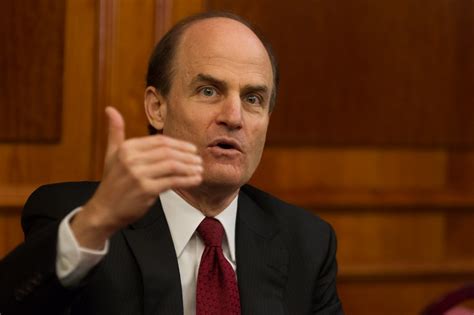A Quote by Margrethe Vestager
If you're successful in the market, it should be because you have the best products. Then your customers like you, not because then you cut corners, or you get a tax break, or you don't inform authorities about how things actually are.
Related Quotes
You should pursue your passion. If you're passionate about something and you work hard, then I think you'll be successful. If you start a business because you think you're going to make a lot of money at it, then you probably won't be successful, because that's the wrong reason to start a business. You have to really believe in what you're doing, be passionate enough about it so that you will put in the hours and hard work that it takes to actually succeed there, and then you'll be successful.
If I get married I get a tax break, if I have a kid I get a tax break, if I get a mortgage I get a tax break. I don't have any kids and I drive a hybrid, I think I should get a tax break. I'm trying to pay off my apartment so I have something tangible. I actually figured out if I paid off my place my reward would be that I would pay an extra four grand a year in taxes.
Because these firms listened to their customers, invested aggressively in new technologies that would provide their customers more and better products of the sort they wanted, and because they carefully studied market trends and systematically allocated investment capital to innovations that promised the best returns, they lost their positions of leadership.
Lego was our fourth film, because we did two Cloudys, so yeah there's a little bit of shorthand that's involved and then you can anticipate things- because for me it's like, I get a script for a movie and I go, "Wow that's a pretty good script", then you sign on and a couple months later they show you the first cut and you're like, "Whoa, how did that happen?"
Choose to be entrepreneur because then YOU create value. Choose to be an entrepreneur because the products, services, and jobs you create then become the lifeblood of our nation. But most of all, choose to be an entrepreneur because then you desire a life of adventure, endless challenge, and the opportunity to be your BEST SELF.
However, you have to recognize that regulations will never be completely successful and they will always be full of holes. You must constantly be ready to fill new holes. Actually regulation should be kept to a minimum, but there has to be some cooperation between market participants and authorities - as was the case in the early postwar years. The Bank of England was a very successful regulator by cooperating with market participants. This cooperative spirit was broken by the market fundamentalists.
The business plan should address: "How will I get customers? How will I market the product or service? Who will I target?" The principles of a business plan are pretty much the same. But after page one to two, everything is unpredictable, because costs or competition will change and you don't know how things will be received by the market. You have to be able to continually adapt. Companies that fail to adapt will die. Others are brilliant at adapting.
Shifting Philip Morris to the new a non-risk products doesn't mean that I will give market share to my competitors free of charge. In the markets where we are not present with IQOS yet or the other reduced-risk products, you still need to defend your share of the market. They still represent the bulk of our income, and so far they have financed the billions of dollars we have put behind these new products. But once we go national in a market, and absent capacity constraints, then you shift your resources and your focus to these new products.
Entrepreneurship is all about an idea that creates differentiated business value to one's customers. You must be able to convince your customers about the benefits that association with you or your products will give them. People are ready to pay if they are convinced about your services or products.
In collage you're doing it in stages so you're not actually doing it right there. You first of all draw it on the paper, then you cut it up, then you paste it down, then you change it, then you shove it about, then you may paint bits of it over, so actually you're not making the picture there and then, you're making it through a process, so it's not so spontaneous.
Often people say they can't base their strategies on customers because customers make unreasonable requests and because customers vary too much. Such opinions reveal serious misconceptions. The truly outside-in company definitely does not try to serve all the needs of its customers. Instead, its managers are clear about what their organization can and should do for customers, and whatever they do they do well. They focus.


































